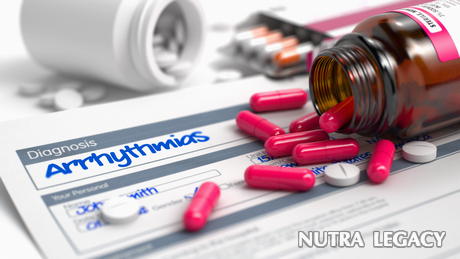All You Need to Know about Cardiac Arrhythmia

- Heart problems are usually serious but cardiac arrhythmia is usually harmless for your overall cardiovascular health
- Cardiac arrhythmia is just an irregular heartbeat. More than 800,000 people are put in the hospital a year because of it
- They can happen to anyone but sometimes cardiac arrhythmias are symptoms of coronary heart disease and could be followed by a heart attack
- Diagnosis will include visiting a cardiologist. Some tests you may encounter are an electrocardiogram and a heart ejection fraction measurement
Although heart problems are rarely something you should not worry about, cardiac arrhythmia is usually harmless. However, you can learn a lot about your cardiovascular health if you simply listen to your heart. By learning more about cardiac arrhythmia, you can feel more secure about your diagnose and about what it means for your overall health.
Cardiac Arrhythmia Defined
An arrhythmia is the technical term for an irregular heartbeat. These can also occur in conjunction with normal, slow, or fast heart rates. Every year, more than 800,000 people are put in the hospital because of an arrhythmia. However, they don’t have to be associated with heart problems. In fact, irregular heartbeats can happen in hearts that are perfectly healthy.
Causes of Cardiac Arrhythmia
While the cardiac arrhythmia can occur in someone who is perfectly healthy, they can be a symptom of other problems. If you have coronary heart disease, for example, this could lead to irregular heartbeats. If you don’t have enough sodium or potassium in your blood, this can also cause problems for your heartbeat. Sometimes the irregularity is caused by injuries following a heart attack or as part of post-surgical healing. You should always consult your cardiologist about your irregular heartbeat so that he or she can review your medical record to determine the most likely cause.
Symptoms of Cardiac Arrhythmia
In some cases, your cardiac arrhythmia may not produce any symptoms. You may not experience it in any way, but your physician may pick it up on an electrocardiogram (ECG). Occasionally, however, some symptoms are present and noticeable. These could include feelings of fluttering or “flip flops” in your cheat which are termed palpitations. You may feel dizzy suddenly or have a pounding in your chest. Chest discomfort, fatigue, shortness of breath, and occasionally fainting can accompany your irregular heartbeats.
Getting Diagnosed
Although your diagnosis will begin with your cardiologist trying to listen to your heart but that will probably only be the beginning. Your physician will order some additional tests, possibly including an electrocardiogram and heart ejection fraction measurement. You may also be asked to wear a heart monitor for several days and to keep track of any irregularities you experience. Once your physician knows for sure that you have an arrhythmia, he or she will try to determine the best course of action. If it is not causing you other health problems, no additional treatment may be needed. If the arrhythmia is severe or is a symptom of another heart problem, you may need treatment.
Treatments for Cardiac Arrhythmias
The first line of treatment is usually going to be medication. Different types are available, including antiarrhythmic drugs designed to control heart rhythm and beta blockers which prevent the heart from becoming overly stimulated. In other cases, you may need a more intensive treatment approach, including a pacemaker which takes over for your heart’s natural system of beating and ensures a more regular rhythm.
Another treatment is available as well. A device known as an Implantable Cardioverter-Defribrillator (ICD) can be implanted to control some of the most severe cardiac arrhythmias.
To obtain overall cardiovascular health, check out supplements like Co Q10 200 Sublingual.
The information supplied in this article is not to be considered as medical advice and is for educational purposes only.
|
2 Responses to “All You Need to Know about Cardiac Arrhythmia” | ||||||||||||||





 21 Dec 2008
21 Dec 2008
I suffer from this myself, and every time my heart skips a beat, I get paranoid. My doctor says that it's nothing to worry about, much like this article, but then it also says it could be a symptom of heart disease. So, how can I not worry? How can I know for sure that I'm not on the way to a heart attack?February 1st, 2011 at 4:25 am
I suffer from this myself, and every time my heart skips a beat, I get paranoid. My doctor says that it's nothing to worry about, much like this article, but then it also says it could be a symptom of heart disease. So, how can I not worry? How can I know for sure that I'm not on the way to a heart attack?January 31st, 2011 at 11:25 pm